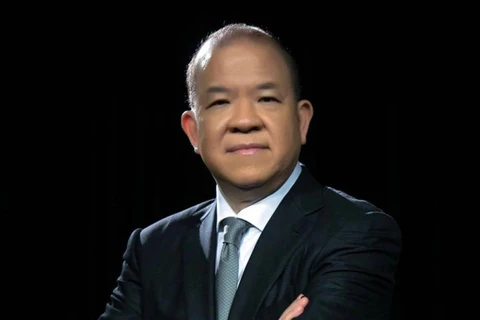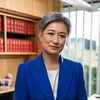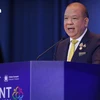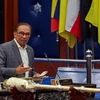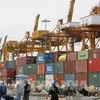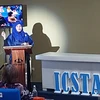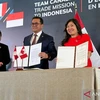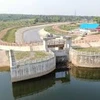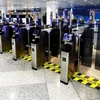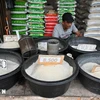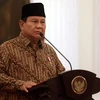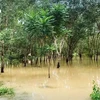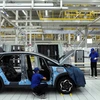Bangkok (VNA) - Thailand’s leading corporations and conglomerates are collaborating on a roadmap to phase out polluting fossil fuels and shift towards clean energy for sustainable development.
According to the country's Power Development Plan (PDP) and power production plan of the Electricity Generating Authority of Thailand (EGAT), hydrogen energy will be introduced into electricity production by 2030. The PDP highlights a higher renewable energy ratio of 51%, primarily solar energy, with 40% coming from natural gas and 5% from hydrogen. By the end of the plan, 600 MW small modular nuclear reactors (SMRs) will be deployed as an additional option.
Wattanapong Kurovat, Director of the Energy Policy and Planning Office (EPPO), said that EPPO plans to gradually transition to natural gas, the cleanest fuel, as the primary energy source. The challenges lie in ensuring energy security and affordability. While solar energy is cost-effective, its instability remains a significant obstacle for Thailand’s transition.
Advanced technology, particularly battery energy storage systems, will be essential to address this issue, he added.
Chaiwat Kovavisarach, CEO of Bangchak Group and President of Bangchak Corporation Plc, noted that the development of artificial intelligence (AI) demands immense energy, impacting global resources such as water and energy. This reliance may increase dependency on natural gas and nuclear power plants using SMRs as alternative energy sources.
He said AI processing and energy demands currently range from 300-1,000 MW and are expected to soar to 5 GW in the future, equivalent to the energy required by 100 Bangchak oil refineries. This underscores the need for new energy sources to support AI usage. Globally, nuclear energy is regaining attention, and Thailand should consider studying its feasibility.
For its part, energy conglomerate PTT aims to drive hydrogen fuel adoption in Thailand and promote carbon capture and storage (CCS) projects, according to its CEO and President Kongkrapan Intarajang. Hydrogen, as a clean energy source, will play a key role in reducing carbon dioxide emissions and supporting Thailand’s goal of achieving net zero emissions by 2065. CCS technology is also critical for future carbon reduction efforts.
Meanwhile, EGAT is actively promoting the use of SMRs to ensure grid stability, its governor Thepparat Theppitak said, explaining that these plants operate 24/7, emit no carbon dioxide, and offer competitive electricity costs due to the low price, abundance, and minimal usage of uranium fuel.
EGAT has been studying nuclear technology and developing personnel for over 17 years to prepare for the potential establishment of nuclear power plants.
Akira Takahashi, President and Managing Director of Mitsubishi Power and MHI Power Project in Thailand, firmly believes that clean hydrogen energy offers a sustainable solution.
However, the high initial cost of hydrogen production will necessitate significant investment from both private and public sectors over the next decade if commercial operations can start as expected by 2040./.
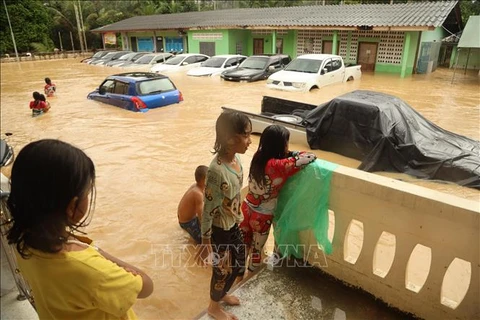
Thailand plans to set up national disaster management centre
The Thai Government has announced plans to establish a national disaster management centre to tackle emergencies and support disaster-hit areas.
